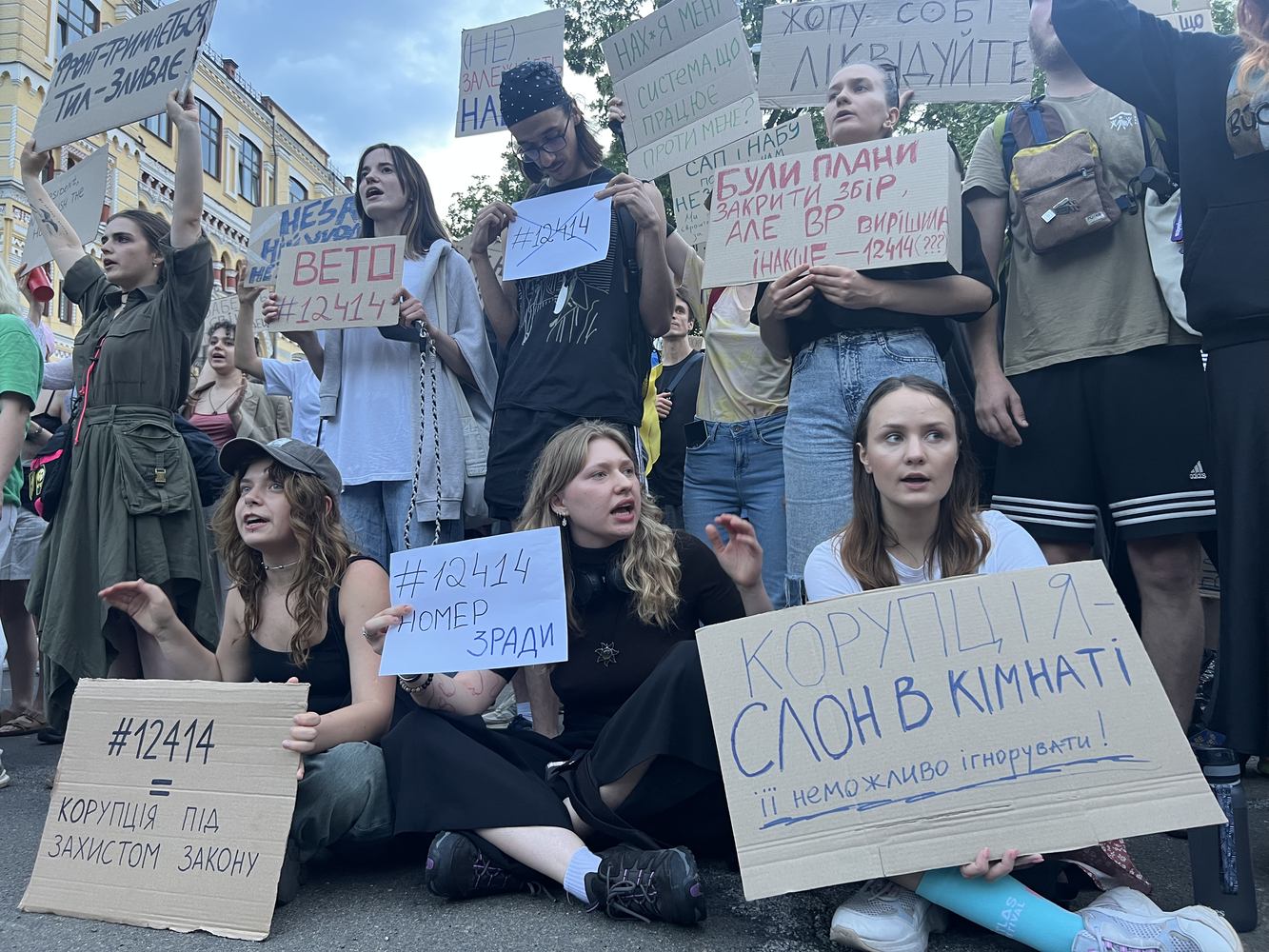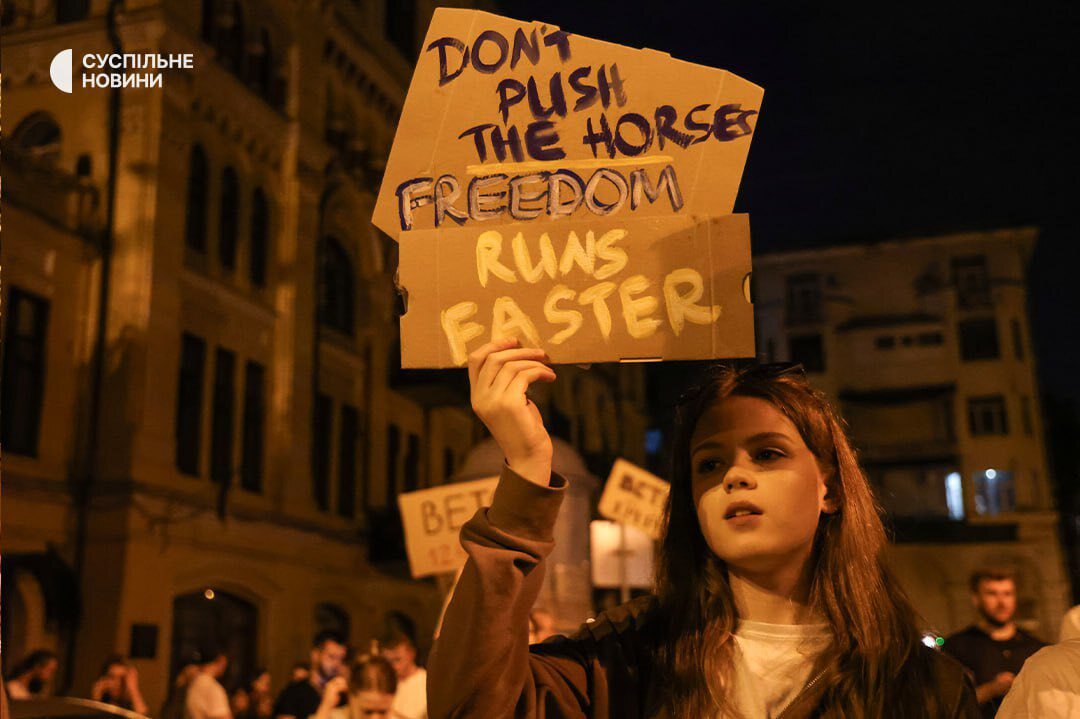President Volodymyr Zelenskyy signed the law anyway. Even as thousands of Ukrainians demonstrated in Kyiv, Lviv, and Dnipro—the first major protests against his government since Russia’s invasion—even as the European Union demanded explanations and G7 ambassadors expressed “serious concerns,” Ukraine’s president destroyed his country’s independent anti-corruption infrastructure with a single signature.
The reason was simple—and it reveals everything wrong with how Ukraine still operates.
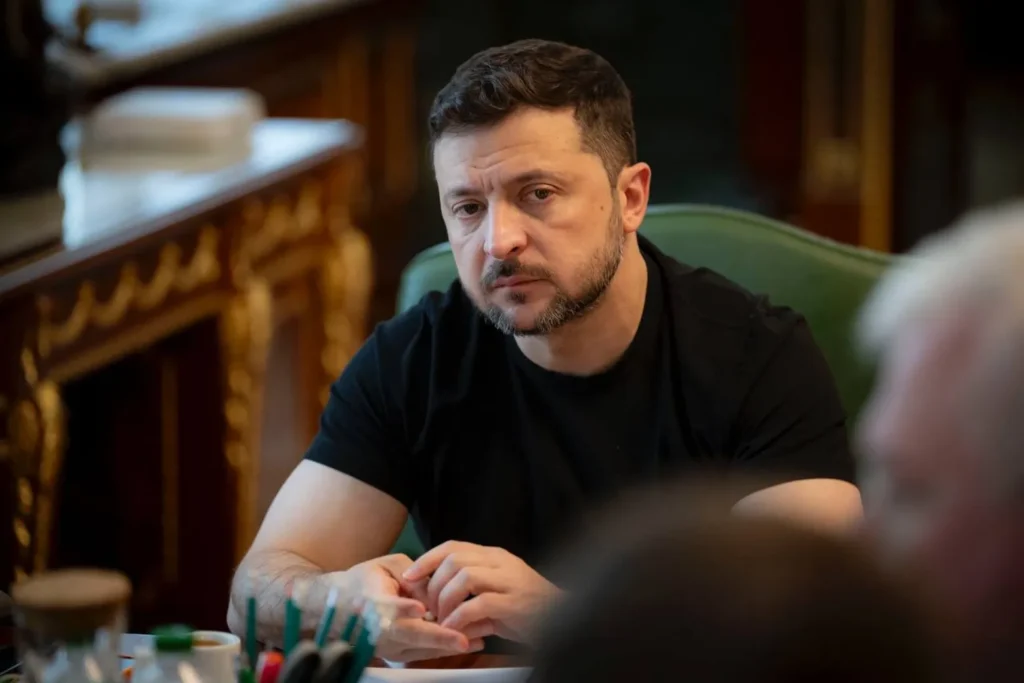
Corruption investigators were closing in on Zelenskyy’s inner circle. Two men from his closest orbit faced charges: Oleksiy Chernyshov, the only Cabinet minister invited to Zelenskyy’s COVID birthday party, and Tymur Mindych, his business partner from the Kvartal 95 comedy studio.
Rather than let them face justice, Zelenskyy chose to eliminate the investigators— NABU and SAPO.
This matters because when anti-corruption agencies finally reached the president’s actual family—not just random officials, but his birthday party guests and business partners—Ukraine witnessed its first real test of whether it had outgrown the post-Soviet patronage trap.
The answer came swift and brutal: personal loyalty won, institutional accountability lost.
The family under investigation
Chernyshov wasn’t just any minister. During Ukraine’s strict COVID-19 lockdown in 2021, when gatherings were banned, Zelenskyy invited only a handful of intimates to celebrate his birthday. Chernyshov was the sole government official present. Ukrainska Pravda reported this marked him as part of Zelenskyy’s inner circle, someone beyond typical political appointees.
The relationship runs deeper than professional. Sources indicate close family friendships between the Zelenskyy and Chernyshov families, with connections predating the full-scale invasion. Despite lacking infrastructure experience, Chernyshov has held four high-level positions across six years.
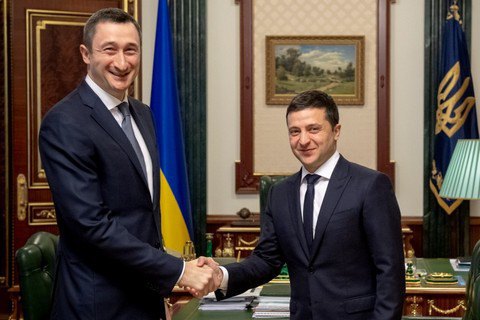
When no suitable position existed, parliament created an entirely new Ministry of National Unity specifically for him.
In June, NABU charged Chernyshov with organizing a massive land scheme, allegedly manipulating state transfers to benefit developers in exchange for apartments worth $346,000 at artificially low prices — costing the state over $24 million.
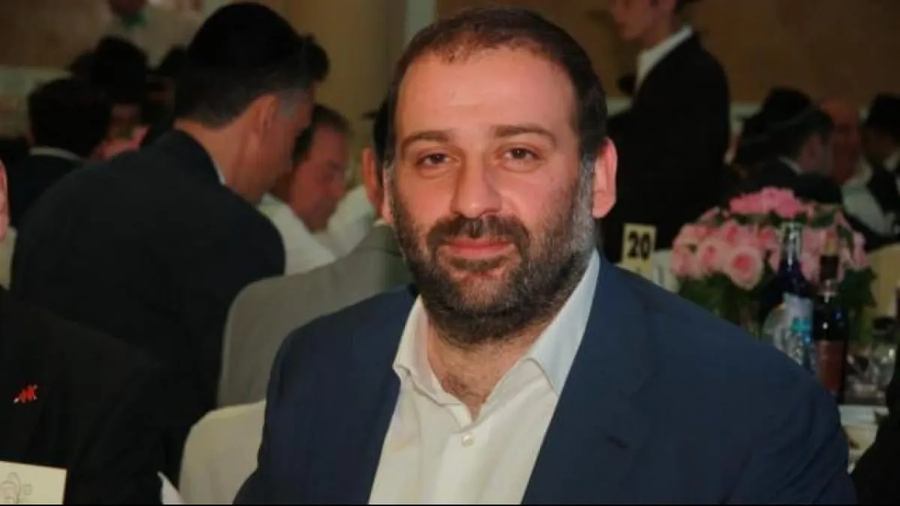
Tymur Mindich represents Zelenskyy’s pre-political past as co-owner of Kvartal 95, the entertainment company that launched his career. ZN.ua describes him as “one of the main consultants to the head of the President’s Office Andriy Yermak” and a “long-time business partner of President Volodymyr Zelenskyy.”
Investigators were preparing charges against Mindich himself, according to sources who told Ukrainska Pravda. When the heat intensified, MP Yaroslav Zhelezniak reported that Mindich fled Ukraine and “will likely not return in the near future.”
Here’s what makes this different from typical Ukrainian corruption scandals: these weren’t random officials caught stealing. These were Zelenskyy’s actual inner circle — the people who got him to power and stayed there with him.
As anti-corruption architect Daria Kaleniuk warned, this was Zelenskyy’s “Yanukovych moment” — a return to “the era of untouchables in Ukraine” where loyalty to the president meant immunity from investigation.
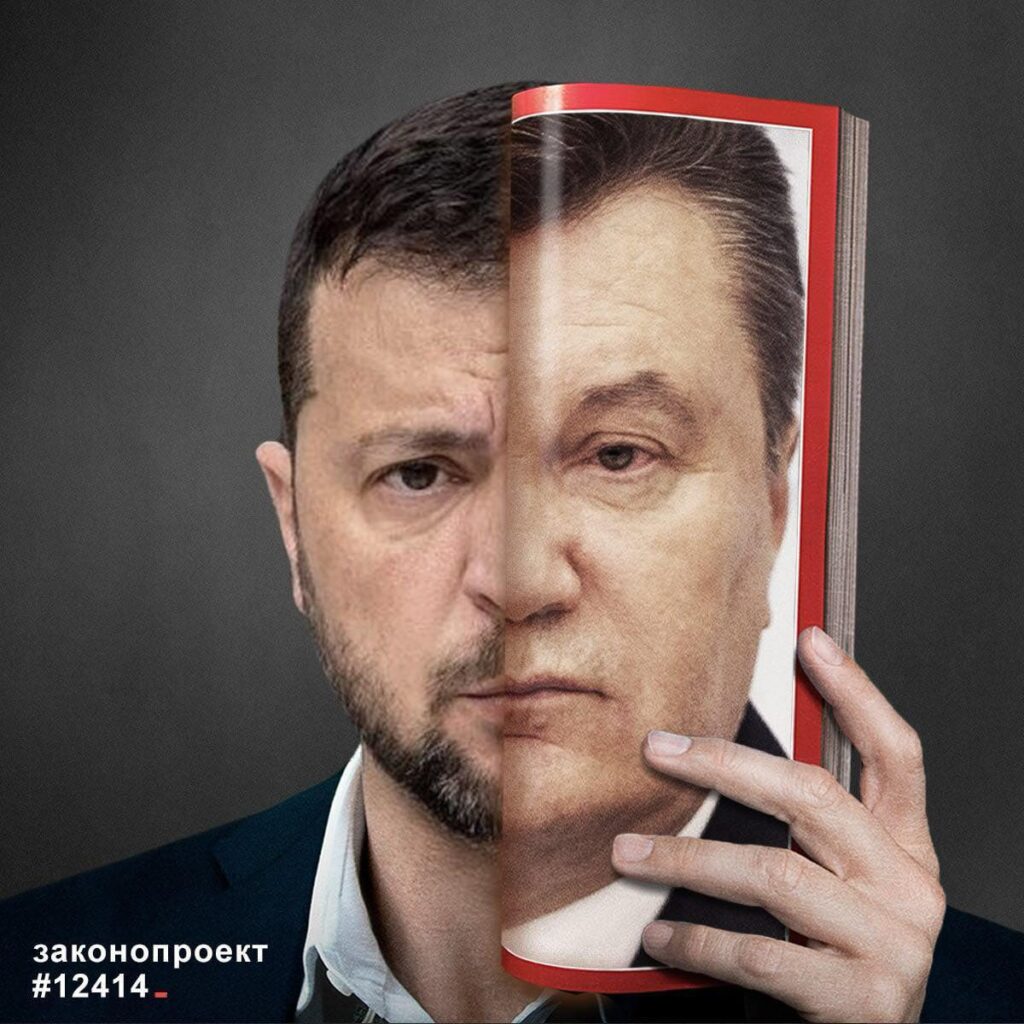
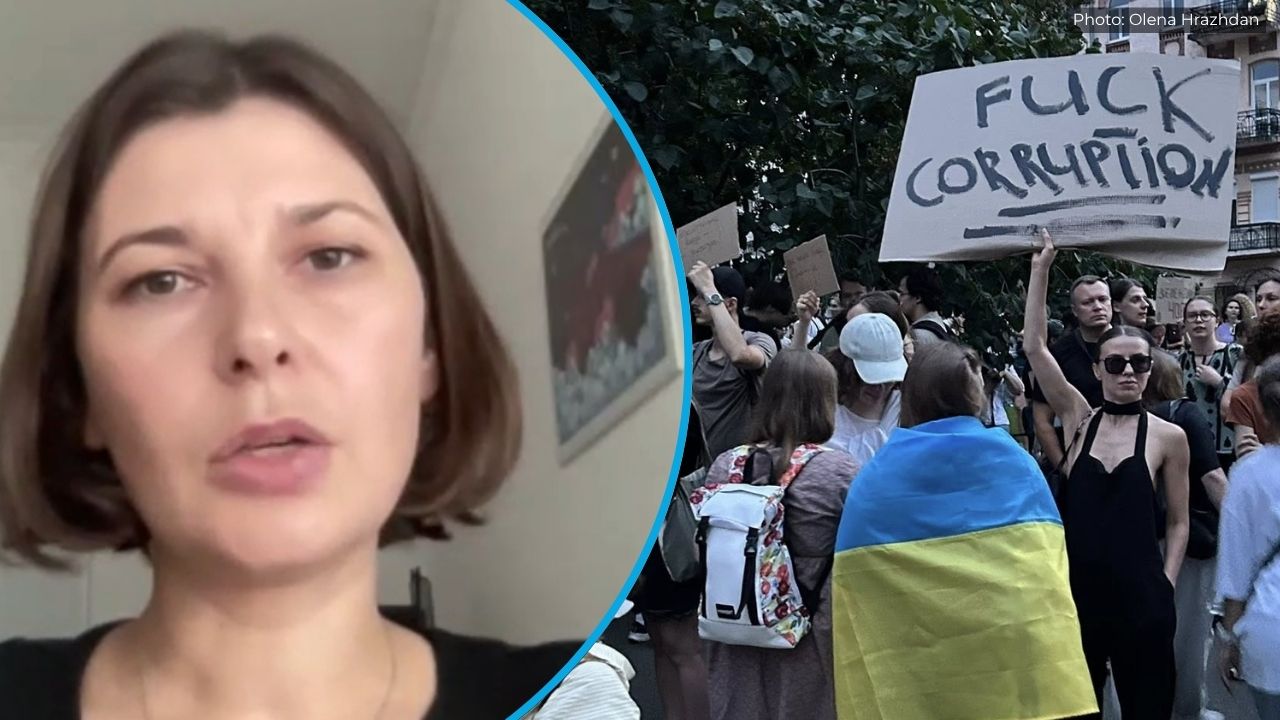
“I defended Zelenskyy against Trump’s dictatorship accusations. Now I can’t,” says Ukraine’s top corruption fighter
The parliamentary blitzkrieg
When corruption charges reached these core members of Zelenskyy’s circle, the response was swift and systematic. The destruction happened through brazen procedural violations that would have embarrassed even Viktor Yanukovych.
On 21 July, Security Service forces conducted 70 simultaneous raids on anti-corruption officials, claiming to expose “Russian moles” in NABU.
The numbers exposed the theater immediately: 70 searches produced five charges, three involving old traffic accidents from 2021-2023. “Mathematics is an exact science,” observed Andriy Borovyk, director of Transparency International Ukraine: if there was a real reason for them, they should have produced more substantial evidence.
Twenty-four hours later came what MP Yaroslav Zhelezniak called a “blitzkrieg” against anti-corruption institutions. They disguised the attack as humanitarian legislation. MP Maksym Buzhanskyш introduced a bill about missing persons procedures.
In the final hours, amendments materialized that had nothing to do with missing persons and everything to do with eliminating anti-corruption independence.
MPs had roughly an hour to review amendments that fundamentally transformed Ukraine’s corruption oversight. The atmosphere was celebratory. “After the vote, I heard a phrase from one of them,” Zhelezniak recalled. “It was Maksym Buzhansky… This phrase was: ‘This football I like.'”
Parliament voted 263-13 to subordinate NADB and the Specialized Anti-Corruption Prosecutor’s Office to a presidential appointee.
The message was clear: investigate mid-level officials all you want, but the president’s “family” remains off-limits.
The comedy studio government
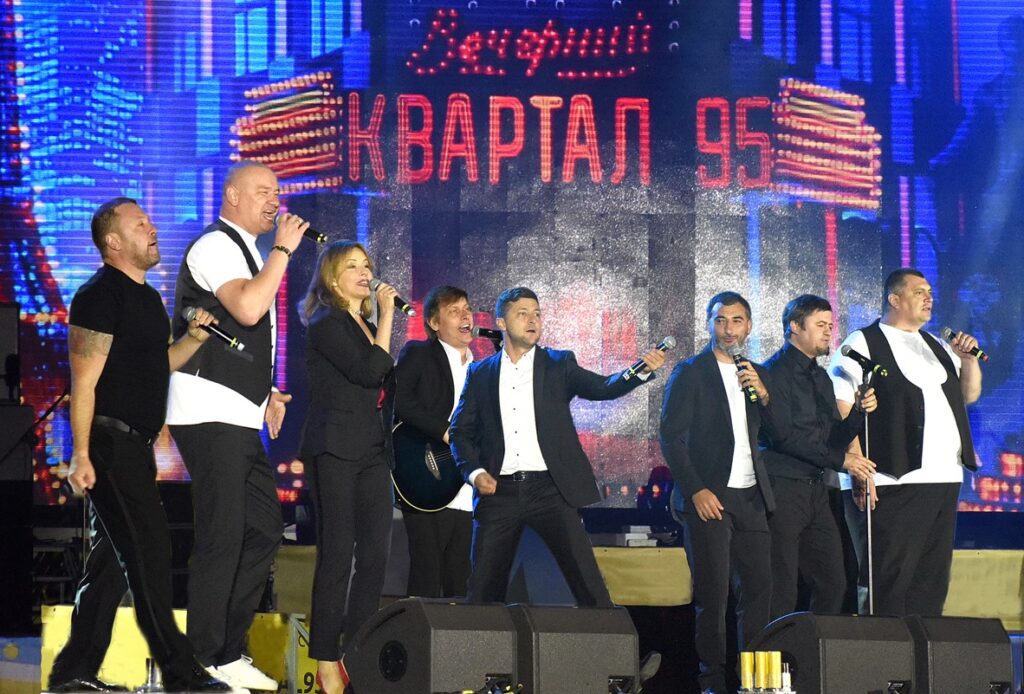
But this wasn’t just about protecting two friends. The appointments reveal how Zelenskyy systematically recreated the exact loyalty-based system he campaigned against — just with different people.
After Zelenskyy’s presidential victory in 2019, over 30 former Kvartal 95 employees and their associates moved into government positions. Ukrainian analysts call it a “comedy studio government.”
The pattern was clear: personal loyalty trumped professional qualifications.
Radio Svoboda documented the network: Serhiy Shefir, Zelenskyy’s co-owner of Kvartal 95, became First Assistant to the President. Andriy Yermak, a film producer who met Zelenskyy in 2011, rose to Head of the Presidential Office — what The Washington Post describes as “arguably the most powerful chief of staff in Ukraine’s history.”
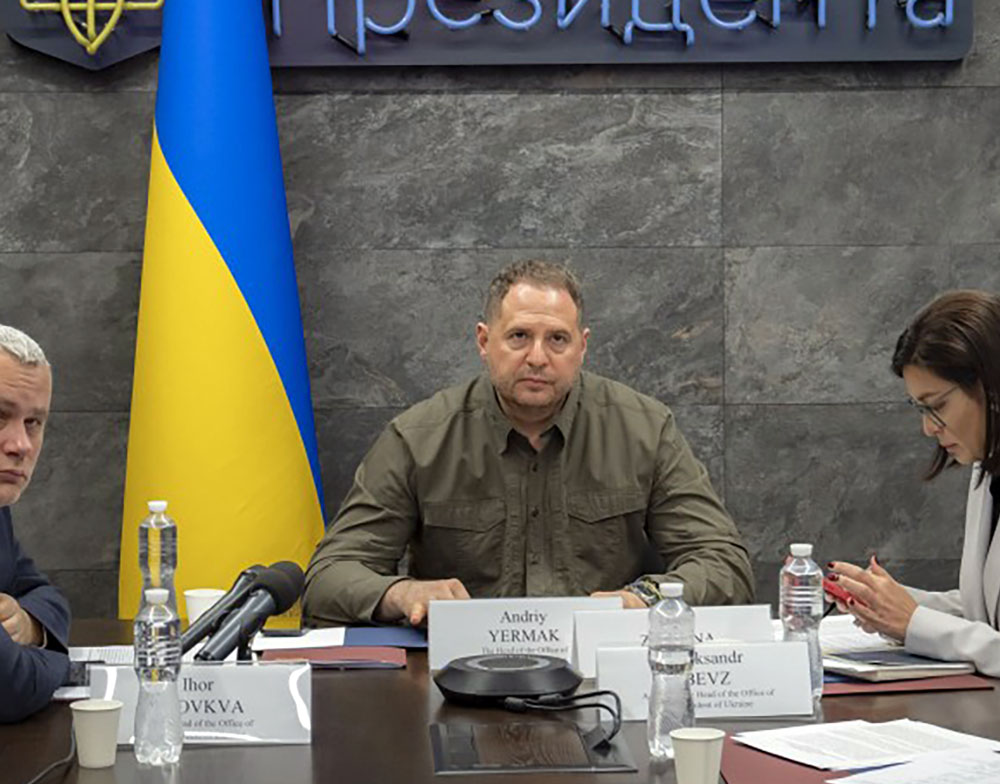
The most catastrophic appointment was Ivan Bakanov, Zelenskyy’s childhood friend from Kryvyi Rih and Kvartal 95’s former lawyer. Despite having zero intelligence experience, Zelenskyy made him head of the Security Service (SBU) in August 2019.
Under Bakanov’s watch, the SBU appointed Oleksandr Kulinich to a critical southern defense position despite Kulinich being legally barred from state service — the man graduated from Moscow’s FSB academy in 1994. When Russia invaded on 24 February, this intelligence breach proved fatal. Russian forces advanced 150 kilometers in march formation, bypassing Ukrainian positions. Kherson fell in exactly seven days.
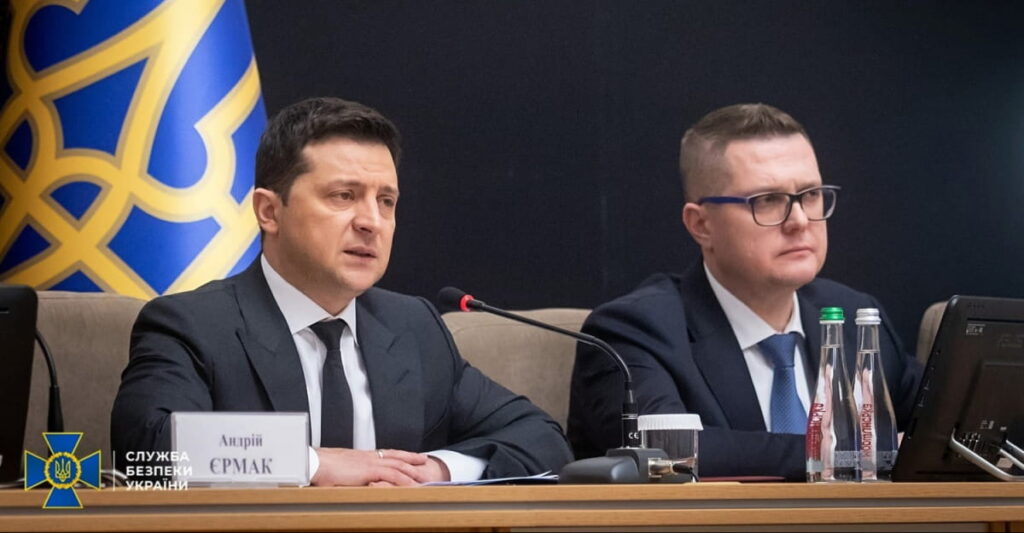
The Washington Post reported that 651 criminal proceedings were registered regarding treason and collaboration by law enforcement officials, with over 60 from the prosecutor’s office and the SBU working against Ukraine in occupied territories.
This is why loyalty-based governance can’t coexist with institutional accountability. When you staff government based on personal relationships rather than merit, you create a state that can’t tolerate oversight — because accountability exposes the incompetence and corruption that loyalty-first appointments inevitably produce.
What Ukraine lost
NABU and SAPO were created after the 2014 Euromaidan Revolution as Ukraine’s first real separation of powers. Their independence was a requirement for EU membership negotiations, visa-free travel to Europe, and billions in international aid.
Under the new law, the prosecutor general can transfer any NABU investigation to other agencies, issue binding instructions to detectives, close cases at defense request, and delegate SAP’s powers to other prosecutors.
“If the anti-corruption structure is embedded in a politicized law enforcement system, it won’t work,” MP Yaroslav Yurchyshyn explained. “It won’t present suspicions to ministers, advisors, or deputy heads of the President’s Office, or deputies.”
The strategic miscalculation
The destruction provides perfect ammunition for those questioning Ukraine aid. European reactions came swiftly. European Commissioner Marta Kos called the law “a serious step back,” warning that “independent bodies like NABU and SAPO are essential for Ukraine’s EU path.”
European Pravda reported that Brussels had secretly scheduled 18 July to open Ukraine’s first EU negotiating cluster, but abandoned the plan after Ukraine’s anti-corruption crackdown.
The timing wasn’t coincidental. American rule-of-law programs had withdrawn from Ukraine in February and March 2025, and European officials were on summer vacation. Ukrainian authorities misread signals from the Trump administration as permission to attack democratic institutions.
Putin originally justified his invasion partly by claiming Ukraine was establishing anti-corruption institutions with foreign experts. As Kaleniuk pointed out, “Ukrainian MPs are now making Putin’s argument for him.”
MP Zhelezniak recalled Putin’s February 2022 speech: “So he named one of the reasons why he’s starting war—the presence of independent anti-corruption bodies. And we liquidated them today.”
When Ukrainians said no
But Ukrainian society had other ideas. Mass protests erupted across Ukraine on 22 July — the first major demonstrations against Zelenskyy’s government since Russia’s invasion. The Washington Post reported thousands flooded central Kyiv and massed in cities across the war-torn country, by far the largest demonstrations since Russia’s 2022 invasion.
Protesters chanted “Get your hands off NABU and SAP” and “Veto the law,” while drivers honked in support. Even facing this unprecedented resistance, Zelenskyy signed the law anyway.
The next morning, he scrambled to gather law enforcement and anti-corruption agency heads for emergency meetings. On 23 July, he promised to introduce new legislation preserving anti-corruption independence. Parliament’s summer recess was canceled for an emergency session.
Meanwhile, 48 MPs began preparing a Constitutional Court challenge.
The maturity test
This was Ukraine’s first major test of whether it had outgrown the post-Soviet patronage trap that destroyed every previous government. The entertainment industry veterans who took power in 2019 tried to replicate the same loyalty-first system that had dominated Ukrainian politics for decades. When independent institutions threatened their inner circle, they attempted to destroy those institutions.
But Ukrainian civil society had matured during three decades of independence and intensified during three years of war. The massive protests forced Zelenskyy into damage control, demonstrating that Ukraine’s democratic evolution had outpaced its leaders’ authoritarian instincts.
Society won the test. Zelenskyy lost it spectacularly. The protests suggest that Ukrainian democracy—tested by war, corruption, and institutional capture — proved more resilient than the patronage networks trying to control it.The president who campaigned against the system of untouchables had created his own version. When Ukrainians recognized the pattern, they took to the streets to defend the institutions he had promised to protect. In that response lies hope that Ukraine’s democratic future remains stronger than its authoritarian past.




